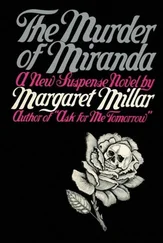“You would do anything for me?”
“Yes.”
“When the time comes,” I said, “when the time comes, Rose must disappear.”
“I know that. It’s all been arranged. She has promised—”
“Promises are only words, only air going in and out of the lungs and shapes of sounds in and out of the larynx. Promises are nothing, Willett. You understand?”
“They’re all I have.”
“You must have more. You must have certainty.”
“There aren’t many certainties in this world.”
“There are two,” I said. “Death and taxes.”
“You should be resting, Mother.”
“Death and taxes,” I repeated. “She’s not a good woman, Willett. It isn’t as if she were. No one will miss her. No one will care.”
“I don’t know what you’re talking about.”
“She’s a dreadful old woman, really. Haven’t you noticed? Don’t you hate the way she looks, the way she talks? Don’t you think she’s dreadful?”
“No. No. ”
“Those eyes, mean, hard, little eyes. They would be better off sealed.”
“Mother—”
“Seal them.”
“You’re not rational, Mother.”
“Make Rose a certainty. Seal those horrid, little eyes.”
Willett looked at me with such sadness. Then he got up and leaned over me and pressed his hand on my forehead and touched the lids of my eyes. “Go to sleep, Momma, you’re tired.”
I am tired. But I must not sleep. I must plan. Willett thinks I am losing my mind. He doesn’t understand, he hasn’t looked into that mirror, he hasn’t seen what I have. Tomorrow I will show him what springs out at me when the door closes. Tomorrow he will see that dreadful old woman...
But tomorrow was too late.
She went to sleep with the pen in her hand, and the sound of church bells in her ears, and in the morning she did not awaken.
The drawing room was still hot, still humid. There was too much of everything in it, too much sun and furniture and gilt, too many mirrors.
Ethel looked at Willett across the excess of everything and spoke to him without words: Take it easy, old boy. Everything will be all right. You still have me.
The front left, second-floor room of Mrs. Cushman’s boarding house was beginning to look normal again. Rose’s clothes were strewn across the bed, a tomato and half a dozen oranges were ripening on the windowsill and Rose herself was rehanging her pictures on the wall. She had on a red plaid dress that Ethel had given to her. The dress was two or three sizes too large and made her resemble a scarecrow, a fact which Rose used to her own advantage.
“Look at me,” she said. “Just look. I’ve lost pounds.”
Mrs. Cushman looked, and said with feeling, “You poor thing.”
“I damn near starved.”
“We’ll feed you up real nice, Rose. Don’t you worry, you’ve got some good years in you yet. And just to think not more than a week ago I went to your funeral.”
“Was it nice?”
“Real nice. The minister said some lovely things about you. Better than you deserve, if you’ll pardon my tactlessness.” Mrs. Cushman’s eyes narrowed in thought. “As a matter of fact, it seems to me you always get a little better than you deserve.”
Rose did not take offense, because she couldn’t afford to; but she tucked the remark away in a corner of her mind for future reference and rebuttal. “Things have,” she admitted, “turned out very well.”
Mrs. Cushman stood quietly for a moment, torn between her desire to see justice done and her desire to remain the friend and confidante of someone who was very nearly murdered and who’d already had a funeral.
Justice won. “It don’t seem right that nobody was arrested.”
“You have a small mind,” Rose said crushingly. “Extremely small.”
“Small mind or no small mind, somebody should of been arrested.”
“They couldn’t get enough evidence to take into court. Besides, we’ve all suffered enough.”
“I wonder.”
“When I think of myself imprisoned in that room, hungry, chained to the bed, practically—”
“Huh.”
“Well, if you’re going to be unpleasant about it, Blanche, I’ve a good notion to pack up my bags and leave.”
“You haven’t got anywhere to go.”
“Oh, haven’t I? Well, I’ll have you know that Dalloway is yearning to have me back, and Lora wants me to share an apartment with her, and Ethel offered me a job in San Francisco, and Frank and Miriam would be delighted if I—”
“That last picture’s not straight, the one from Golden Girls .”
Rose straightened the picture, brushing off a speck of dust with the sleeve of Ethel’s plaid dress. She said, with a sigh, “ Golden Girls. Ah, that was a production. Remember it, Blanche?”
“I remember.”
“Those were the days. I was married to Hamman then, Dwight Hamman. God, what a skunk he turned out to be, a real crook if I ever saw one.”
“You saw more than one,” Mrs. Cushman said pointedly. “And more than saw, too.” From the kitchen below came the sound of the supper bell. “Chained to the bed. Huh .”
“Morally, I was.”
“Justice ain’t been done.”
But justice was vast, evasive, misty. You could not talk to it, play canasta with it, invite it for a cup of tea. Besides, there was the vague possibility that everyone had indeed suffered enough.
The two women went down the stairs to supper arm in arm, with justice following at a respectful distance.
On the couch in his own parlor Captain Greer was enjoying his after-dinner nap. His stomach was full and his dream was sweet: he had arrested all of them — Rose and Willett and Jack and Ethel and Dalloway and Lora, yes, even Miriam and Frank — and their sad, pleading faces were looking out at him from behind steel bars.
Greer smiled in his sleep.
![Маргарет Миллар Rose's Last Summer [= The Lively Corpse] обложка книги](/books/384369/margaret-millar-rose-s-last-summer-the-lively-c-cover.webp)

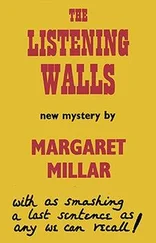
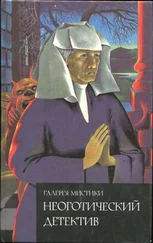
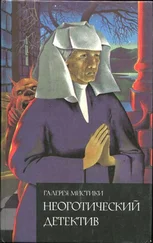

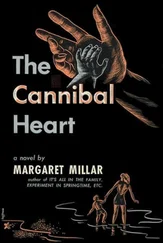

![Маргарет Миллар - The Iron Gates [= Taste of Fears]](/books/433837/margaret-millar-the-iron-gates-taste-of-fears-thumb.webp)
